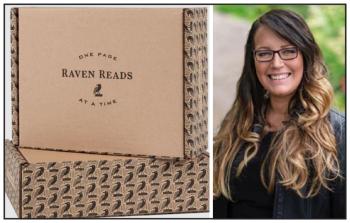Image Caption
Summary
Local Journalism Initiative Reporter
Windspeaker.com
When children across the country attend their local Scouts group this fall, they will get the opportunity to learn more about Indigenous culture and history.
Scouts Canada has partnered with Raven Reads, an Indigenous subscription gift box service, which creates age-appropriate gift boxes for readers.
The partnership will create an exclusive package of books available to Scouts Canada members filled with books and educational materials to “assist in leading discussions around reconciliation and Indigenous cultures in Canada.”
The boxes will contain “informative print materials and age-appropriate books written by Indigenous authors” for members ages five to 26. Presales will be undertaken by Raven Reads by mid-August, with the general sale happening in September.
Additionally, each box will contain suggested activities that will integrate the Truth and Reconciliation Commission’s Calls to Action.
The TRC wrote 94 action items that will repair and restore Canada’s relationship with Indigenous peoples and communities damaged through assimilation policies and practices, such as residential schools and child welfare systems, and legislation that disrupted Indigenous communities, families and individual inherent rights, responsibilities, and jurisdiction.
One of the key voices behind Raven Reads is Nicole McLaren, the organization’s founder.
“I thought it was a great opportunity to introduce a helpful tool for (Scouts Canada) to begin having a discussion amongst their members about reconciliation, but also having a trustworthy source of resources and information to kind of guide them along that journey,” McLaren said in an interview with Windspeaker.com.
McLaren, a Métis entrepreneur from British Columbia and Saskatchewan, is hoping the first Scouts Canada box will be the beginning of an ongoing partnership.
“My mixed-heritage and Indigenous roots have instilled a passion in me for finding interesting ways to engage, inspire and motivate those around me,” McLaren’s bio on the Raven Reads website.
McLaren said reviewing the Calls to Action helped her come up with the idea for Raven Reads.
“There was a lot of interest in how people could play a role in reconciliation. But the biggest question for me was, ‘Well, what can I personally do?’” McLaren said.
“So Raven Reads was kind of created out of an opportunity to provide, for lack of a better word, a ‘toolkit’ for people to begin exploring reconciliation in their own homes while enjoying a great new release novel written by an Indigenous author, complemented with some beautiful products (from) Indigenous companies.”
McLaren said it was time for a change of pace in her own professional life when she decided to start up the service in 2017.
“I had been working in the natural resource industry for years and I saw some great opportunities to improve relationships and communication between Indigenous and non-Indigenous people,” she said. In addition to her work with Raven Reads, McLaren is the founder and chair of the Indigenous Women’s Business Network.
Raven Reads subscriptions are available to the wider public in solo, biannual, or seasonal (four times a year) options, starting at $69 per box up to $259 for the seasonal subscription. For kids, the same tiers apply, starting at $55 per box or $204 for the seasonal plan.
With just four full-time employees, McLaren is very hands on with her work with Raven Reads.
“We're all going to be packing boxes ourselves [throughout the summer],” she said.
McLaren is aware of the delicate balance required to teach children the history of the Canadian and Indigenous relationship, with some very heavy topics to cover.
“There's definitely a fine art to curating content that is informative, but appropriate, so we work closely with other educators to be able to understand how they select materials for their classrooms, or how homeschooling parents select products for their kids as well,” McLaren said. “So we always just pay attention to what some of those different guidelines are, to make sure that we are still providing something where (readers) are still learning about our collective past and the impact of residential schools without doing it in a more harmful way.”
Local Journalism Initiative Reporters are supported by a financial contribution made by the Government of Canada.

